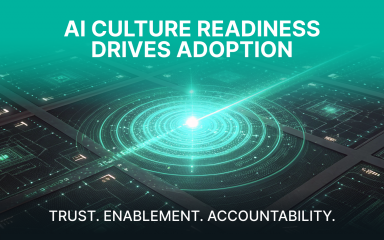IT staff augmentation describes a collaboration model where companies expand their development capacity by adding external professionals to their internal teams. This approach gives eCommerce organizations a practical way to scale projects, manage workload spikes, and access niche skills without lengthy hiring cycles. Unlike traditional hiring, which often involves long-term commitments and extended recruitment processes, staff augmentation offers a faster, more flexible solution for project-specific needs. As outsourcing matures, augmentation has become central to flexible delivery models that support AI, cloud, and data-driven initiatives.
The market reflects this shift. IT staff augmentation was valued at about USD 299 billion in 2023 and is projected to reach USD 857 billion by 2031 at a 13.2% CAGR. Alternative analyses place the service segment at USD 1.037 billion in 2025, expanding to USD 1.462 billion by 2034. Adoption grows because over 75% of companies report difficulty hiring IT specialists, and SMBs show a 40% increase in using augmentation to access skills without increasing permanent headcount. Staff augmentation is also considered a cost-effective alternative to traditional hiring, as it reduces expenses related to full-time hires and long-term commitments.
Several trends accelerate demand. AI tools support recruitment and skill matching for 45% of organizations, improving the quality and speed of talent acquisition. Remote work allows companies to form global teams without geographic limitations, providing access to a global talent pool of skilled professionals. By 2026, more IT leaders expect full Agile and DevOps integration, creating a constant need for engineers who can join ongoing processes quickly.
Across Europe, the USA, and the Middle East, decision-makers reassess their outsourcing strategies. They look for partners who can strengthen engineering capacity and guide long-term product development. This is where Bintime positions itself: as an IT, AI & Data Partner for Businesses, offering both engineering expertise and strategic support. The company provides not only experienced developers but also consulting services for architecture, data, and AI systems.
This hub consolidates Bintime’s earlier materials on outsourcing, dedicated teams, and augmentation into one structured resource. It covers the meaning of IT staff augmentation, its benefits, contract considerations, geographic delivery models, and the trends shaping the next phase of outsourcing. It also reflects how the market is moving from transactional engagements toward ongoing partnerships supported by embedded engineering teams and AI consulting services.
So, what exactly is IT staff augmentation? IT staff augmentation means adding external engineers to an internal team to close skill gaps or increase capacity. These specialists join the client’s workflow, follow internal processes, and help maintain predictable delivery without extending the permanent workforce.
IT Staff Augmentation: Meaning and Benefits
IT staff augmentation meaning refers to a collaboration model where companies expand their engineering capacity by adding external specialists to internal teams without increasing permanent headcount. These engineers work inside the client’s workflows, tools, and delivery processes, helping organizations close skill gaps or scale faster without long recruitment cycles. Staff augmentation helps companies find the right talent for their project needs, ensuring that specific project requirements are met efficiently.
This approach allows organizations to fill specific skill gaps and quickly adapt to changing project demands and requirements, providing flexibility and scalability without long-term commitments.
What IT Staff Augmentation Means for eCommerce Businesses
For eCommerce businesses, IT staff augmentation means adding external engineers to internal teams to stabilize delivery, increase speed, and access niche expertise that is often hard to hire locally. This approach provides access to skilled developers and external talent, enabling businesses to quickly fill skill gaps and scale their teams as needed.
eCommerce and marketplace platforms operate under constant change: integrations, checkout flows, catalog expansion, promotions, performance updates, and data synchronization. These systems evolve continuously, and delivery teams frequently face peaks of work that internal resources cannot handle alone. Augmentation solves this by supplying skilled engineers who integrate into existing workflows and support ongoing initiatives without long onboarding cycles, helping teams meet project deadlines and avoid delivery bottlenecks.
Why eCommerce Teams Use Augmentation
- Fast access to missing skills such as Python, Java, React, Magento, BigCommerce, or data engineering, addressing specific skill gaps within your in-house team
- Gain access to high caliber talent for critical initiatives without the delays of traditional hiring
- Flexibility to scale up or down based on promotional seasons or roadmap changes
- Predictable delivery without restructuring the internal team
- Coverage for complex domains, including Product Information Management (PIM) systems, marketplace integrations, and fulfillment platforms
- Compatibility with modern practices, including Agile delivery, DevOps pipelines, and AI-driven automation
The benefits of staff augmentation are especially visible in fast-moving eCommerce environments where delivery speed, flexibility, and access to niche expertise directly affect revenue and customer experience.
Put simply, IT staff augmentation supports eCommerce businesses by adding capacity exactly when needed, reducing delivery bottlenecks, and providing access to specialized engineering skills.
Attracting Skilled Professionals Through Augmentation
IT staff augmentation helps companies attract skilled professionals by connecting them with pre-vetted professionals from a diverse talent pool, ensuring quick access to qualified engineers who already have the experience required for complex systems.
Because over 75% of companies face IT talent shortages, augmentation gives access to a broader pool of specialists with proven expertise, including developers familiar with eCommerce architectures, distributed systems, search engines, catalog logic, and personalization engines.
How Augmentation Simplifies Talent Acquisition
- Pre-vetted talent
Engineers undergo technical evaluation before joining the client team.
- Faster onboarding
Developers adjust quickly due to experience with similar systems and tech stacks.
- Access to niche skills
Data engineers, DevOps, QA automation, AI/ML specialists, and integration experts, leveraging global talent for specialized expertise.
- Reduced hiring overhead
No long recruitment cycles, benefits administration, or internal HR load, while optimizing resource allocation to match project needs efficiently.
Skills Commonly Augmented in eCommerce
| Role | Typical Use Case |
| Backend Engineer | Marketplace logic, inventory sync, order management |
| Frontend Engineer | Checkout flows, UI improvements, A/B experiments |
| QA Automation | Regression testing across catalogs and promotions |
| DevOps | CI/CD setup, autoscaling, HA environments |
| Data Engineer | Product data normalization, analytics pipelines |
| AI/Machine Learning Specialist | Personalization, prediction models, anomaly detection |
Augmented staff complement the core team by providing specialized skills and additional capacity, enabling teams to accelerate access to experts who support product growth without the delays of full hiring cycles.
Choosing Between Staff Augmentation and Managed Services
Choose staff augmentation when you want external engineers inside your existing workflows. Choose managed services when you want a vendor to own a specific function or operational area.
When considering IT service delivery, it’s important to understand the staff augmentation vs. managed services comparison. Evaluating these options helps organizations determine which augmentation model best fits their needs.
Both models support delivery, but they differ in ownership, responsibility, and level of control. Selecting the right augmentation model ensures you optimize project success and resource management by aligning the augmentation model with your specific requirements.
This decision mirrors the type of trade-offs made by executive leaders like Satya Nadella, who oversees large-scale engineering organizations where internal teams, external partners, and platform strategy must stay tightly aligned.
Comparison Table: Augmentation vs Managed Services
| Aspect | IT Staff Augmentation | Managed Services |
| Ownership | Client manages work | Vendor owns outcomes |
| Integration | Full integration with internal team | Partial integration; separate workflows |
| Flexibility | High; adjust capacity anytime | Moderate, tied to contracts |
| Best For | Dynamic roadmaps, fast-changing priorities | Stable, repetitive operations |
| Examples | Developers, QA, DevOps joining sprints | 24/7 support, infrastructure monitoring |
Note: Other common models include project outsourcing, where an external vendor delivers an entire project, and independent contractors, who are hired directly for specific roles with the client responsible for management and access control.
How to Decide
Pick augmentation when:
- You have internal leadership (CTO, PM, Tech Leads)
- You need to scale quickly
- Workload fluctuates month by month
- The team works in Agile/DevOps
- You want to avoid the long-term commitments and costs of permanent hiring or hiring full-time employees
Pick managed services when:
- You need predictable monthly operations
- SLAs matter more than flexibility
- The function does not require daily collaboration
In short, augmentation fits evolving product roadmaps and offers a flexible alternative to permanent hiring or hiring full-time employees. Managed services fit routine, stable, predictable operations.
Contracts and Best Practices in IT Staff Augmentation
A good IT staff augmentation contract defines responsibilities, communication rules, confidentiality, quality expectations, and terms for scaling the team up or down.
Many organizations align their outsourcing contracts with ISO 37500:2014, an international standard that defines principles for responsible outsourcing governance. The framework focuses on transparency, accountability, and balanced client–provider relationships, making it relevant for long-term staff augmentation and team extension models.
Because an augmented team works inside the client’s workflow, clarity is essential. Effective onboarding should include integrating the augmented team into the company culture and ensuring team alignment, so all members collaborate seamlessly and work toward shared goals. Well-structured contracts reduce administrative questions and help the team focus on delivery.
Key Elements of a Strong Staff Augmentation Contract
- Role definitions and seniority levels
Clear expectations around responsibilities and skill requirements.
- Onboarding and integration plan
Tools, access, codebase introduction, team communication structure, and provision of office space when relevant (such as for offshore or distributed teams).
- Working hours, overlap, and collaboration protocol
Especially relevant for distributed teams across Europe, the USA, and MENA.
- Quality standards
Coding guidelines, testing depth, documentation expectations.
- Security and confidentiality
Alignment with standards such as ISO 27001 or ISO 37500 outsourcing principles.
- Scaling terms
Rules for adding or removing engineers based on workload.
- Exit and knowledge transfer
Ensures continuity even when developers rotate.
IT Staff Augmentation Best Practices
- Start with a pilot period to validate communication and delivery.
- Assign a single point of contact on both sides.
- Maintain transparent sprint reporting.
- Include periodic retrospectives to adjust cooperation.
- Document decisions, architecture changes, and dependencies.
- Integrate augmented talent as equal contributors within hybrid teams to foster collaboration and accelerate innovation.
Contracts work best when they focus on clarity, collaboration, and smooth integration rather than rigid control. Augmented teams succeed when expectations and communication channels are precise.
Outsourcing Models: Pros, Cons, and Evolution
Outsourcing models define how companies work with external engineering partners. Various staff augmentation models offer flexible ways to scale IT teams and fill skill gaps, as well as other outsourcing models such as independent contractors, dedicated teams, and time and material agreements. Some organizations may also choose to outsource an entire project, depending on their needs. Each model supports different goals, from short-term capacity increases to long-term ownership of product delivery. Understanding these models helps eCommerce leaders choose the approach that fits their roadmap, risk tolerance, and operational constraints.
Pros and Cons of Outsourcing in IT
Outsourcing in IT allows companies to delegate development tasks, maintenance, or full product ownership to an external team. The model remains relevant for organizations with clear project scopes, limited internal resources, or long-term backlog commitments.
Vendors providing outsourcing services often serve multiple clients simultaneously, managing resources across several projects and clients. The main advantage of IT outsourcing is predictable delivery without hiring and managing an internal team. At the same time, the disadvantages of outsourcing become more visible when product priorities change frequently or when teams require tight daily collaboration and fast decision-making. The main drawback is reduced control over daily execution and slower adaptation to changes.
Pros and Cons of Outsourcing
| Pros | Cons |
| Predictable cost structure | Less control over workflow and priorities |
| Access to complete teams | Harder to integrate company-specific practices |
| Fast onboarding for defined projects | Communication gaps may affect timelines |
| Suitable for long-term maintenance | Limited flexibility when scope shifts |
| Reduces managerial overhead | Dependency on vendor availability |
Outsourcing simplifies delivery when requirements are stable. It becomes less effective when product priorities shift often or when tight integration with internal teams is required.
How to Choose the Right Software Development Partner
Choosing a development partner goes beyond comparing rates. CTOs look for reliability, predictable communication, and experience in domains like eCommerce, data management, and marketplace architecture. It is also crucial to select partners with proven expertise, demonstrated through case studies, testimonials, and successful project outcomes.
A strong outsourcing partner brings technical competence, transparent processes, and the ability to align with the client’s long-term product vision.
Key Criteria for Selecting a Partner
- Domain expertise
Experience in similar systems (eCommerce, PIM/MDM, marketplaces).
- Team composition
Availability of architects, senior engineers, QA, DevOps, and analysts.
- Delivery processes
Use of Agile, DevOps practices, and clear documentation.
- Communication structure
Dedicated coordinator, regular reports, and escalation paths.
- Quality standards
Testing depth, coding guidelines, and acceptance criteria.
- Security and compliance
Knowledge of frameworks like ISO 27001 or ISO 37500 outsourcing guidance.
- Project completion
Evaluate the partner’s track record for successful project completion and their ability to integrate external staff for efficient and timely delivery.
Companies succeed with partners who understand both technology and the operational context in which that technology will live.
Comprehensive Guide to Outsourcing Models
Outsourcing includes several engagement formats. Each addresses a different challenge, from scaling a specific team to delegating end-to-end responsibility. Remote staff augmentation is a flexible model that allows businesses to scale their teams by accessing global talent remotely, making it especially suitable for startups and organizations seeking specialized skills.
Main Outsourcing Models
| Model | Definition | Best For |
| Project-based outsourcing | A vendor delivers a defined scope from start to finish | Clear requirements and fixed timelines |
| Managed services | Vendor owns an operational area (e.g., support, QA) | Continuous workflows and stable demand |
| Dedicated development team | A full team works long-term for one client | Complex products and ongoing evolution |
| IT staff augmentation | External engineers join internal teams | Skills gaps and unpredictable workload |
All these models interact with your in house team or in house staff differently. IT staff augmentation directly integrates external talent with your in house staff, supporting your core team and allowing for a smooth transition of responsibilities back to internal personnel when needed. Other models may supplement or temporarily replace functions typically handled by your in house team.
Companies choose outsourcing models based on control, speed, and ownership needs. Staff augmentation offers the most flexibility; dedicated teams offer long-term stability; managed services provide predictable operations.
Setting Clear Expectations with Outsourcing Companies
Success in outsourcing depends on mutual clarity. Even highly skilled teams struggle when goals, responsibilities, or communication routines are vague.
Clear expectations reduce delivery risks. Companies should define scope, responsibilities, communication, and success metrics before development starts. It is also essential to establish project oversight and set clear project timelines to maintain control over execution and ensure deadlines are met.
Six Core Areas to Align
- Scope boundaries
What the team delivers and what they do not deliver.
- Roles and ownership
Client-side product owner vs. vendor-side team lead, including clear resource allocation to optimize team structure and project management.
- Communication cadence
Daily standups, weekly reviews, and monthly roadmap syncs.
- Quality thresholds
Definition of ready/done, test coverage, and acceptance rules.
- Change management
How scope changes are introduced and approved.
- Documentation standards
Architecture diagrams, API specifications, and sprint notes.
Good outsourcing is predictable when both sides understand how decisions are made and how progress is measured.
Geographic Outsourcing Models
Geographic outsourcing models shape how teams collaborate across time zones, legal frameworks, and cultural contexts. For eCommerce companies, location affects delivery speed, communication quality, cost predictability, cost efficiency, and access to specialized skills. Two models dominate current decision-making: Eastern Europe outsourcing and nearshore outsourcing.
Outsourcing to Eastern Europe: Benefits and Country Selection
Outsourcing to Eastern Europe gives companies access to one of the largest and most mature IT talent pools globally, combined with close time-zone alignment to Europe and partial overlap with the USA.
According to Eurostat data on employed ICT specialists, Central and Eastern Europe represents one of the largest concentrations of ICT professionals in the EU, with several million specialists employed across CEE countries, making the region a leading nearshore destination for IT outsourcing and staff augmentation. The regional IT outsourcing market is projected to reach USD 5.34 billion by 2025, supported by a 1.75 million-engineer active talent pool and average salaries up to 50% lower than in the US, without sacrificing engineering quality.
Eastern Europe has become a default choice for staff augmentation and nearshore delivery. Countries such as Poland, Ukraine, Romania, Bulgaria, and the Baltic states combine strong technical education systems, high English proficiency, and delivery experience across complex, enterprise-grade platforms.
Companies typically compare delivery models across Europe, the USA, Asia, and the UAE, balancing time-zone alignment, regulatory context, and access to specialized engineering talent.
Companies exploring this model often review an overview of outsourcing in Eastern Europe and how to choose the right country, which explains how local ecosystems differ in specialization, language proficiency, and regulatory context.
Country Snapshot
| Country | IT Specialists | Market Notes |
| Poland | 525,000+ | The ICT market revenue is projected at ~USD 51.23B by 2030; strong nearshoring demand and mature delivery ecosystem |
| Ukraine | ~250,000 | Large export-oriented ICT workforce; continued delivery for EU and US clients despite geopolitical challenges |
| Romania | Competitive | One of the fastest-growing IT outsourcing markets in CEE, with an estimated 10–15% annual growth |
Why Eastern Europe Works for eCommerce Teams
- Strong technical education in computer science, mathematics, and engineering
- High English proficiency, especially in client-facing roles
- Cultural alignment with Western business practices
- Time-zone overlap with Europe and partial overlap with North America
- Experience with complex platforms, including marketplaces, PIM systems, and payment integrations, and proven ability to access global talent through work with international clients
Typical Use Cases
| Scenario | Why Eastern Europe Fits |
| Long-term staff augmentation | Stable teams and low attrition |
| Dedicated development teams | Mature delivery processes |
| Marketplace and platform work | Experience with scale, integrations, and handling complex projects |
| Data and backend-heavy systems | Strong engineering fundamentals |
Country Selection Considerations
When choosing a specific country, companies usually compare:
- Talent availability by stack
- Legal and tax environment
- Political and economic stability
- Hiring speed and onboarding timelines
- Cost differences between seniority levels
From a delivery perspective, Eastern Europe suits companies that need reliable engineers, long-term cooperation, and predictable collaboration across borders.
Nearshore Outsourcing as a Tool for Business Expansion
Nearshore outsourcing places external teams in neighboring or nearby countries, allowing close time-zone alignment and frequent communication with internal teams.
Nearshore outsourcing appeals to organizations that value collaboration and speed over maximum cost reduction. For European companies, nearshore often means Central or Eastern Europe. For US-based businesses, it typically includes Latin America. The model supports fast feedback loops and smoother coordination with product owners and stakeholders.
Many companies rely on how nearshore outsourcing supports operational and delivery expansion to assess whether proximity improves execution for fast-moving roadmaps.
Advantages of Nearshore Outsourcing
- Same or adjacent time zones
- Real-time collaboration with product and business teams
- Lower communication friction
- Faster onboarding compared to distant offshore models
- Easier travel for workshops and planning sessions
Nearshore vs Offshore Comparison
| Aspect | Nearshore | Offshore |
| Time zone overlap | High | Low |
| Communication speed | Fast | Slower |
| Cultural alignment | Higher | Varies |
| Cost level | Medium | Lower |
| Best for | Agile teams, rapid iteration | Cost-driven delivery |
When Nearshore Makes Sense
- Product teams run short sprint cycles
- Stakeholders need daily involvement
- Requirements evolve frequently
- AI, data, or security projects require close supervision
Nearshore outsourcing trades some cost savings for faster collaboration and tighter integration with internal teams.
IT Team Extension and Dedicated Development Teams
IT team extension and dedicated development teams sit between classic outsourcing and staff augmentation. These models support companies that need sustained delivery capacity, tighter alignment with internal goals, and predictable collaboration over time.
Outsourcing Guide: Team Extension Explained
Team extension is an outsourcing model where external engineers become a long-term part of an internal team while remaining employed by the vendor.
Unlike short-term augmentation, team extension focuses on continuity. Engineers join ongoing projects, participate in planning, and build product knowledge over time. This makes the model suitable for platforms with long development cycles, evolving architectures, and recurring business priorities.
Many organizations rely on a detailed explanation of team extension as an outsourcing model to understand how this approach differs from project-based outsourcing and short-term staffing.
When Team Extension Works Best
- Internal teams need long-term capacity support
- Products evolve continuously rather than through fixed projects
- Knowledge retention matters
- Engineering teams collaborate closely with product and business stakeholders
Team Extension vs. Staff Augmentation
| Aspect | Team Extension | Staff Augmentation |
| Duration | Long-term | Short- to mid-term |
| Knowledge retention | High | Medium |
| Integration level | Deep | Full, but role-focused |
| Best use case | Ongoing product development | Skill gaps, workload peaks |
Team extension suits companies that want stability and continuity without building a full internal team from scratch.
How to Hire an Outsourced Development Team
Hiring an outsourced development team requires clear role definitions, delivery expectations, and a structured onboarding process to ensure alignment from day one.
Companies preparing to scale often consult step-by-step guidance on hiring an outsourced development team, which outlines how to evaluate vendors, define scope, and avoid early delivery risks.
Key Steps to Hiring an Outsourced Team
- Define goals and scope
Clarify whether the team supports a product, a platform, or a specific domain.
- Choose the engagement model
Decide between team extension, dedicated team, or managed services.
- Assess technical alignment
Review experience with similar systems, tech stacks, and scale.
- Confirm team structure
Engineers, QA, DevOps, and delivery coordination.
- Plan onboarding
Access, documentation, sprint rituals, and communication channels.
- Set review milestones
Regular checkpoints during the first months.
Common Mistakes to Avoid
- Vague scope descriptions
- No single point of contact
- Missing quality benchmarks
- Weak onboarding documentation
In short, outsourced teams perform best when expectations, ownership, and communication routines are defined early.
The Dedicated Team Model. When and Why to Use It?
The dedicated team model assigns a full-time development team to a single client, focusing exclusively on one product or platform.
This model resembles an internal department, but without the administrative burden of direct employment. Companies exploring long-term delivery often review when the dedicated team model is the best fit for product development, especially for complex systems that require steady evolution.
When Dedicated Teams Make Sense
- Products require continuous improvement
- Architecture evolves over multiple years
- Internal management capacity is limited
- Delivery consistency matters more than short-term flexibility
Dedicated Team Characteristics
| Feature | Dedicated Team |
| Focus | One client, one product |
| Knowledge depth | Very high |
| Delivery ownership | Shared |
| Team stability | Long-term |
| Best fit | Core platforms and ecosystems |
Dedicated teams support complex products where continuity and domain knowledge are critical.
Comparing Staff Augmentation, Dedicated Teams, and Managed Services
Staff augmentation, dedicated teams, and managed services differ in ownership, flexibility, and responsibility for outcomes.
Decision-makers often consult a side-by-side evaluation of managed services and augmentation for long-term delivery to understand how these models align with business priorities.
| Model | Control | Flexibility | Best For |
| Staff Augmentation | High | High | Skill gaps, workload spikes |
| Dedicated Team | Medium–High | Medium | Long-term product development |
| Managed Services | Low | Low–Medium | Stable, repeatable operations |
How to Choose
- Choose staff augmentation when internal leadership manages delivery.
- Choose dedicated teams when continuity and knowledge retention matter.
- Choose managed services when outcomes and SLAs outweigh flexibility.
Each model serves a different operational need. Companies often combine them across different parts of the same product ecosystem.
IT Staff Augmentation Trends for 2026
IT staff augmentation in 2026 is shaped by three forces: AI integration, hybrid team models, and persistent skill shortages. The model no longer serves only as a short-term capacity fix. It has become a strategic way to access niche expertise and accelerate delivery in highly regulated, AI-driven environments.
The global IT staff augmentation market reflects this shift. It is projected to grow up to USD 857.2 billion by 2031, expanding at a 13.2% CAGR.
Augmentation increasingly supports long-running initiatives rather than isolated tasks. These include AI platform rollouts, cloud modernization, cybersecurity programs, and compliance-heavy transformations in sectors such as healthcare and finance.
Emerging Trends in IT Staff Augmentation
By 2026, IT staff augmentation focuses on specialized skills, faster onboarding, and deeper integration with product teams rather than short-term capacity filling.
Many augmentation engagements now focus on maintaining and extending cloud infrastructure platforms used for scalable eCommerce workloads, data processing, and AI deployment.
Several trends shape how companies use augmentation today and how they will use it over the next two years.
Key Trends Shaping Augmentation
- Specialization over generalist roles
Demand grows for engineers with experience in AI pipelines, data platforms, cloud migration, security, and complex integrations.
- Faster team integration
Augmented engineers are expected to contribute within weeks, not months. This shifts emphasis to onboarding quality and documentation.
- Blended team structures
Companies mix internal leads with external specialists across multiple time zones, working as one delivery unit.
- Outcome-oriented collaboration
Teams focus on measurable delivery goals rather than task execution alone.
- AI-assisted hiring and matching
AI tools help assess skills and fit, reducing mismatches and ramp-up time.
Academic research also confirms this shift. The Analysis of Staff Augmentation Trends in the IT Industry highlights growing demand for flexible engagement models as organizations face persistent skill shortages and faster technology cycles. The study links augmentation adoption directly to Agile delivery and distributed team structures.
What This Means for Decision-Makers
- Hiring decisions move closer to delivery needs.
- Contracts emphasize adaptability rather than fixed scope.
- Vendor evaluation prioritizes integration experience, not headcount size.
Augmentation in 2026 centers on speed, specialization, and alignment with product goals.
Responsible AI and Outsourcing Governance
Responsible AI practices and clear outsourcing governance ensure that augmented teams build systems that are secure, compliant, and maintainable.
As AI becomes embedded in eCommerce platforms, governance moves from policy documents to daily engineering decisions. Augmented teams increasingly work on data handling, model integration, and automation logic that directly affects users and business operations.
Governance Areas Companies Focus On
| Area | Why It Matters |
| Data access control | Limits the exposure of sensitive information |
| Model transparency | Supports explainability and auditing |
| Security standards | Reduces operational and compliance risks |
| Documentation | Preserves knowledge across team changes |
| Accountability | Clarifies who owns decisions and outcomes |
Augmented engineers must follow the same rules as internal teams. This includes coding standards, access permissions, review processes, and compliance requirements aligned with frameworks such as ISO-based outsourcing guidance.
Practical Governance Practices
- Define data boundaries before onboarding
- Assign internal owners for AI-related decisions
- Require documentation for model changes and integrations
- Review access rights regularly
Governance becomes a delivery requirement, not a legal afterthought, especially for AI-enabled systems.
Consulting Evolution: From Outsourcing Partner to AI Engineering Partner
Modern outsourcing partners increasingly act as consultants who help shape architecture, delivery models, and AI adoption strategies.
Companies no longer separate “who builds” from “who advises.” Engineering decisions influence cost, scalability, and long-term maintainability. This pushes service providers to combine technical execution with advisory capabilities.
These engagements often combine staff augmentation with AI consulting and engineering support, especially for data pipelines, recommendation systems, and automation workflows.
At Bintime, this evolution means supporting clients beyond staffing. Teams contribute to architectural discussions, help prioritize technical debt, and align engineering work with business goals. The focus shifts from task delivery to shared responsibility for product outcomes.
What Changes in Practice?
- Engineers participate in solution design
- Delivery teams flag architectural risks early
- AI initiatives align with operational realities
- Technology decisions support long-term roadmaps
The growing focus on AI-driven delivery is also reflected in industry events. Global forums such as the Top 10 AI Conferences Worldwide in 2026 highlight how engineering teams, consultants, and platform leaders increasingly collaborate around AI adoption, governance, and integration practices.
The line between outsourcing and consulting continues to narrow as delivery becomes more complex and AI-driven.
Why IT Staff Augmentation Still Matters in eCommerce Marketplaces
IT staff augmentation remains relevant in eCommerce because marketplaces require continuous adaptation, integration, and technical specialization.
Many marketplaces use staff augmentation to support complex solutions such as AI recommendation systems, where models, data pipelines, and business logic evolve continuously. These systems require engineers who understand both machine learning workflows and real-world eCommerce constraints, making flexible access to specialized talent essential.
Why Augmentation Fits Marketplace Environments
- Seasonal traffic peaks require flexible capacity
- Integrations change as partners and channels expand
- AI use cases demand specialized expertise
- Internal teams focus on core roadmap priorities
Common Marketplace Use Cases
| Area | Augmented Support |
| Product data | Normalization, enrichment, validation |
| Search and discovery | Ranking logic, tuning, performance |
| Payments and checkout | Integrations, compliance updates |
| Analytics and reporting | Data pipelines, dashboards |
| AI-driven features | Recommendations, prediction models |
IT staff augmentation continues to support marketplaces by supplying targeted expertise exactly where and when it is needed.
FAQ
What is IT staff augmentation?
IT staff augmentation is a collaboration model where external engineers join an internal team to increase capacity or add specific skills. These specialists work within the client’s processes and tools. The model helps companies scale delivery without long-term hiring commitments.
How does IT staff augmentation differ from outsourcing?
Outsourcing transfers delivery ownership to a vendor, while staff augmentation keeps control inside the client’s team. With augmentation, external engineers follow internal priorities and workflows. Outsourcing suits fixed scopes; augmentation suits changing roadmaps.
What are the main benefits of IT staff augmentation?
The key benefits include faster access to skills, flexible team scaling, and reduced recruitment overhead. Companies also gain specialists who can join ongoing projects quickly. This supports steady delivery during workload spikes or transformation phases.
When should a company choose staff augmentation instead of a dedicated team?
Staff augmentation works best when needs change often or skills are required temporarily. Dedicated teams fit long-term products where continuity and deep domain knowledge matter. The choice depends on delivery stability and internal management capacity.
Is IT staff augmentation suitable for AI and data projects?
Yes. Many companies use augmentation to add AI engineers, data specialists, and DevOps experts to existing teams. This allows faster experimentation and integration while internal teams retain decision-making authority.
What risks should companies consider with IT staff augmentation?
Common risks include unclear responsibilities, weak onboarding, and access management issues. These risks decrease when contracts define roles, communication routines, and security rules clearly. Strong internal coordination is essential.
From Outsourcing to Flexible Engineering Partnerships
IT staff augmentation reflects the evolution of software delivery. Companies move from rigid outsourcing contracts toward models that support flexibility, specialization, and closer collaboration. Augmentation, team extension, dedicated teams, and managed services now coexist within the same delivery ecosystems.
For eCommerce businesses, the choice is rarely binary. Marketplaces, platforms, and data-driven products require different engagement models at different stages. Staff augmentation supports rapid adaptation. Dedicated teams provide continuity. Managed services stabilize operations.
Bintime’s role fits this reality. As an IT, AI, and data partner, the company supports clients across these models, combining engineering execution with consulting insight. The focus stays on predictable delivery, architectural clarity, and long-term product health.
Need help choosing the right delivery model or structuring an IT staff augmentation setup? Explore how Bintime’s 150+ experts can support your business with practical engineering and consulting guidance.











